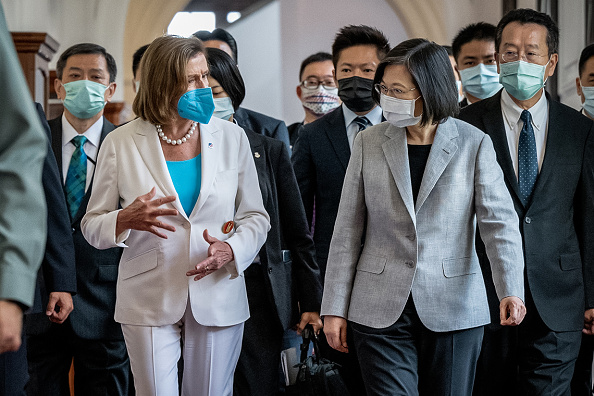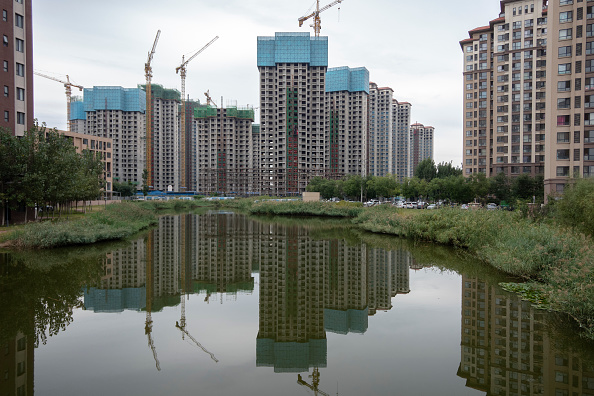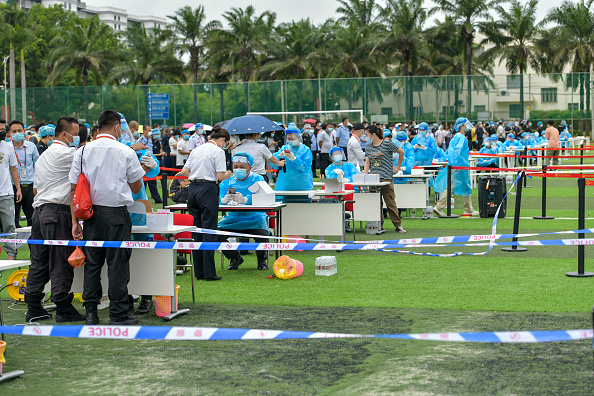
 Backtracking
BacktrackingBeijing has backtracked on its commitment not to deploy military personnel to Taiwan in its latest policy paper, which reaffirms Beijing's wish for peaceful unification but stresses that Beijing will not renounce the use of force if it deems it necessary. This is Beijing's first white paper on Taiwan in Xi Jinping's presidency, and it was published just days after House Speaker Nancy Pelosi's visit to Taipei sparked live ammunition drills by China's military.
The white paper was "released to reiterate the fact that Taiwan is part of China, to demonstrate the resolve of the Communist Party of China (CPC) and the Chinese people and their commitment to national reunification, and to emphasize the position and policies of the CPC and the Chinese government in the new era," according to the Chinese military.
The previous two policy documents on Taiwan in 1993 and 2000, respectively, both stated that it "will not send troops or administrative personnel to be based in Taiwan" in its planned "reunification" of the island it regards as a breakaway province.
Not to be swayed, the U.S. has said it will continue sailing warships through the Taiwan Strait and responding to Chinese military drills around the island. U.S. officials say China is moving towards a long-term strategy of heightened military pressure on the island, and that the U.S. will not back down.
"And all I'll say is we're not going to take the bait, and it's not going to work," said Colin H. Kahl, the under secretary of defense for policy. "What we'll do instead, is to continue to fly, to sail and operate wherever international law allows us to do so, and that includes in the Taiwan Strait."
Read more in "Keeping Cool as Tensions Simmer," Phil Cunningham.
 Bubble Trouble
Bubble TroubleAfter years of speculation of a housing bubble, China's property market is facing some major setbacks. Chinese builders have lost about $55 billion in share value since the start of 2022, house prices are dropping, and apartment sales have slumped for a consecutive thirteen months. Bank of America noted that approximately 9% of the housing floor space that was pre-sold in 2020 and 2021 risks not being completed on schedule because of developers' financial troubles, affecting roughly 2.4 million households.
As a result, China is facing a real estate crisis that is threatening its broader economy and making investors cautious. Real estate has been one of the biggest drivers of economic growth in China, accounting for one-third of the country's $18 trillion gross domestic product (GDP). It is not just the broad economy that relies on it, households do, too. Up to 70 percent of their wealth is tied up in the sector.
All of this is hitting just as China recorded a 0.4% expansion in second-quarter gross domestic product from a year ago, its worst economic performance since the start of the coronavirus pandemic. While much of the slowdown was due to Covid-related lockdowns and restrictions, a 7% contraction in the real-estate sector contributed to the weak output.
 Trouble in Paradise
Trouble in ParadiseReports of Covid-19 reached a three-month high in China this week, prompting further lockdowns after cases had seemingly simmered down from a tumultuous summer. The main spike is centered on the tropical island of Hainan off the southern coast of China, which is home to several beach resort towns and referred to by some as a "vacation paradise".
With nearly 2,000 daily infections reported as the outbreak grows, 80,000 tourists that traveled to Hainan for respite are getting trapped on their trips. Multiple flights have been canceled, public transit has halted, and visitors must show five negative Covid tests taken over seven days in order to leave. New cases have also been found in Shanghai for the first time in a week.
With local governments imposing fresh restrictions on their populations to contain flare-ups, new concerns about the threat of disruption in local economies have also emerged. But Qin Gang, the China Ambassador to the U.S., recently emphasized that he believes the impact of the pandemic on the Chinese economy is only short term.
"The basic features of the Chinese economy — full potential, great resilience, strong vitality, vast room for maneuver and plenty of policy tools — remain unchanged," Qin said. "The various advantages of China's development remain unchanged. We have full confidence in the future of the Chinese economy."
Prepared by China-US Focus editorial teams in Hong Kong and New York, this weekly newsletter offers you snap shots of latest trends and developments emerging from China every week, while adding a dose of historical perspective.
- 2022-08-05 Cross-Strait Outrage
- 2022-07-29 Playing with Fire
- 2022-07-22 Nixonian Flexibility
- 2022-07-15 List Diplomacy
- 2022-07-08 Easing Tariffs, Not Tensions
- 2022-07-01 Getting Tough
- 2022-06-24 Tools in the Box
- 2022-06-17 Unprecedented Oversight
- 2022-06-10 Squaring Off
- 2022-06-03 Diplomatic Chills
- 2022-05-27 Competing Visions
- 2022-05-20 Common Ground
- 2022-05-13 Bilateral Interests
- 2022-05-06 Vying for Mutual Benefit
- 2022-04-29 Seeking Relief
- 2022-04-22 Tipping Point
- 2022-04-15 “Persistence is Victory”
- 2022-04-08 No Divorce
- 2022-04-01 Auditing Accountability
- 2022-03-25 Playing Policy